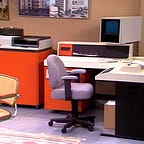The Mafia Logs #1: A Depressed City
If you know me, then you likely know how much I adore the Mafia games despite how rough around the edges all three entries in the series are. They feel unique in the AAA space and especially in the third-person open-world game genre. I’ve long been wanting to write a big essay on the series as a whole, but I figured it might be more interesting to turn it into a series of 500–700 word essays as I replay through all three Mafia games. Let’s see how it goes.
Lost Heaven (a.k.a. a fictionalized Chicago), Illinois. 1930–1938. The ripples of the Great Depression have thoroughly wrecked the day-to-day life of most folks in the city. Prohibition has robbed them of their most common vice. Speak easies, booze runners, and organized crime are all more powerful than ever. This is a city that lives, and dies, by night.
Tommy Angelo, Mafia’s protagonist, joins the mob almost by accident, or possibly by the most corrupted divine intervention. He’s a cabby barely scraping by in a city where no one can afford a cab anymore, and the ones that can are the most uppity assholes imaginable (as the game shows for comedic, angering effect in its opening hour). One night while idly awaiting his next passenger—a prospect he seems all but sure won’t happen—two men run around the corner. They have guns. They’re wearing suits. We know who they are and what will happen next before Tommy even has the time to wipe the dumbfounded look off of his face. And so it begins, by circumstance, Tommy’s rise through the ranks of the Salieri family from a nobody to a dangerous somebody.
But this essay isn’t about Tommy’s mob life, it is about the city his violence occurs through and in. Lost Heaven is a fitting and completely on-the-nose name for the once-bustling city now racked by the realities of depression-era life. Streets are often empty and the areas that teem with the most life are not downtown proper or the business district, but the depressed neighborhoods that form a ring around the gilded, empty city centre. Tommy walks home a friend, soon-to-be lover, one night. She carries a hot dish from the kitchen she works at and gives it to a starving family on the way home. A small act of kindness, a rarity in both the city and the game.
Tommy drives his car over one of the game’s many bridges. A man is about to jump to his death, and emergency workers try and talk him down. “Think of your family, well, if you have a family.” No one is surprised by this anymore. Kindness turns to a hardened reserve, the realities of life kept at a distance, and folks try and find joy where they can. For Tommy and his mob family, that comes through extortion and violence. It isn’t enough for the rich and the banks to extort and do economic violence to everyone, the mob needs their cut. Tommy shakes down a bakery. No one can afford bread anymore. The baker was afraid he wouldn't have enough money for the month’s collection fee. He scrounged up enough. “It’s in the brown envelope on the counter.” His mother screams at Tommy in a language, Italian, that he can’t understand as he grabs the heavy envelope. “We’ll see you next month, and please, let us know if you need anything.” A hollow statement. What the baker, and the city, need the mafia can’t help with. But they do their best to wring the depressed city of all it has left. Rich or poor, it doesn't matter. If you owe, you owe. Pay up.
